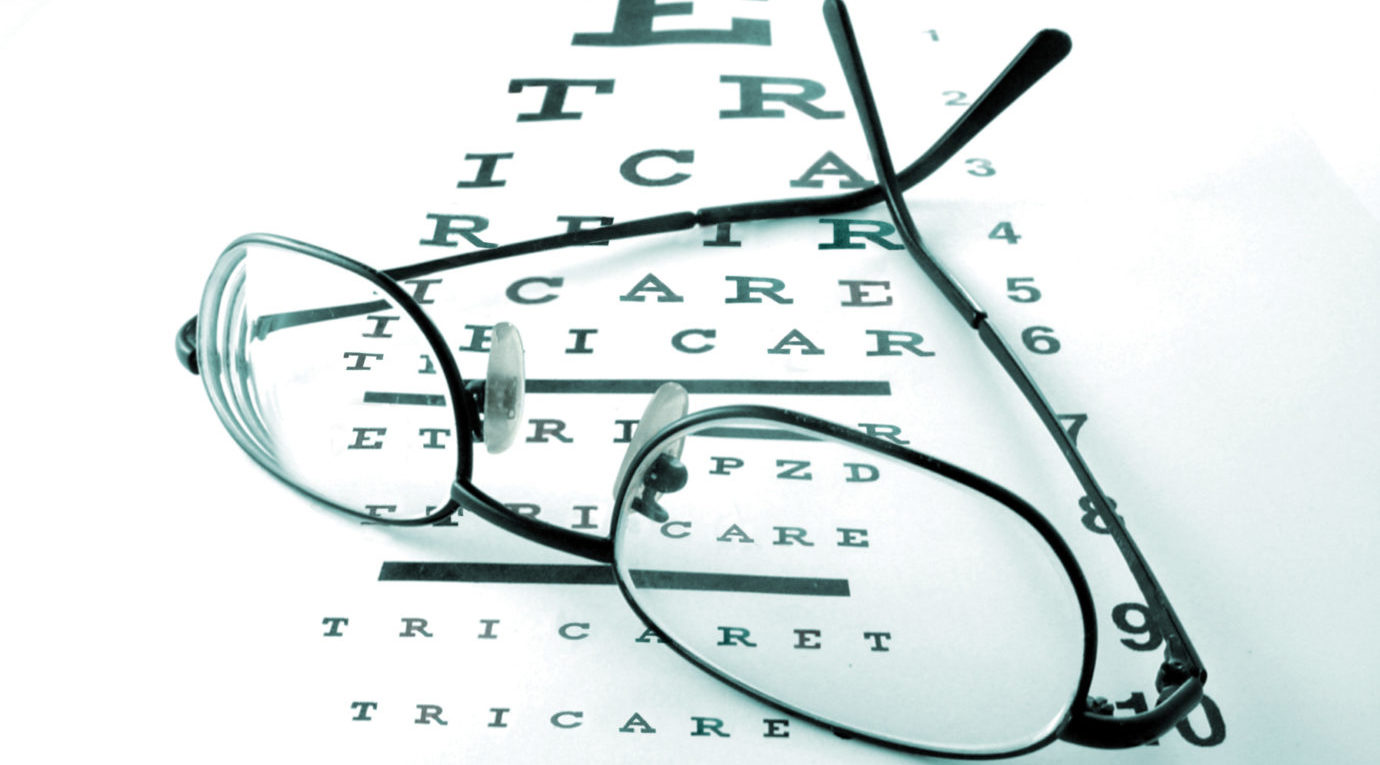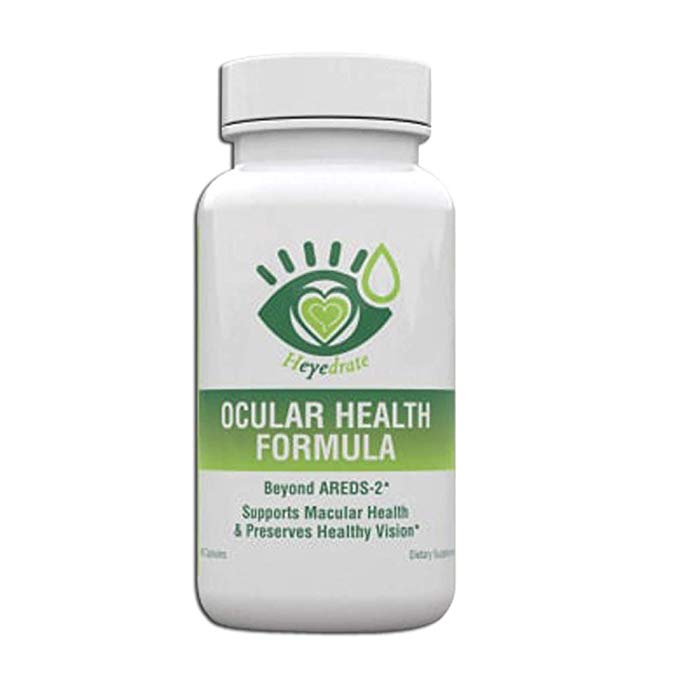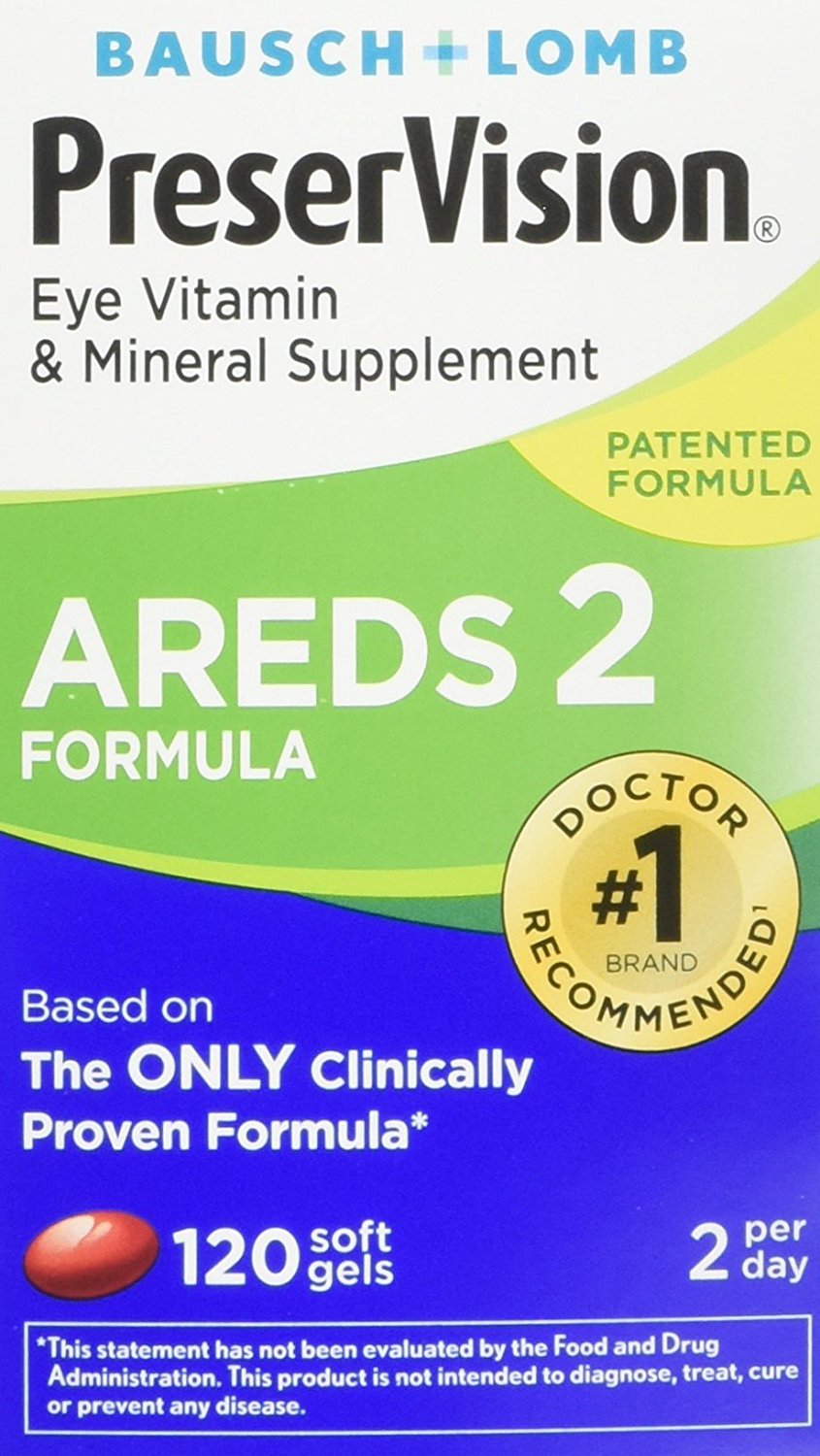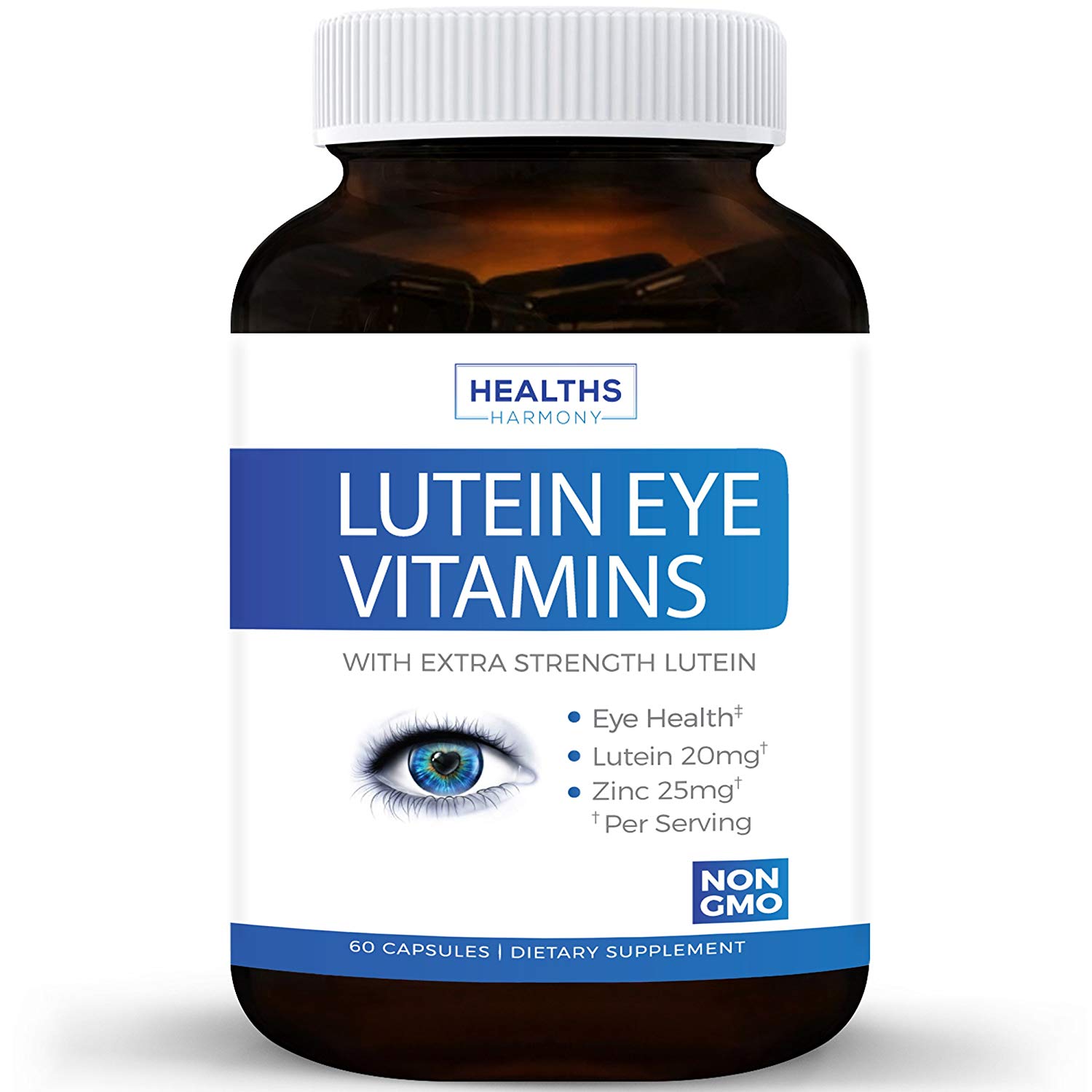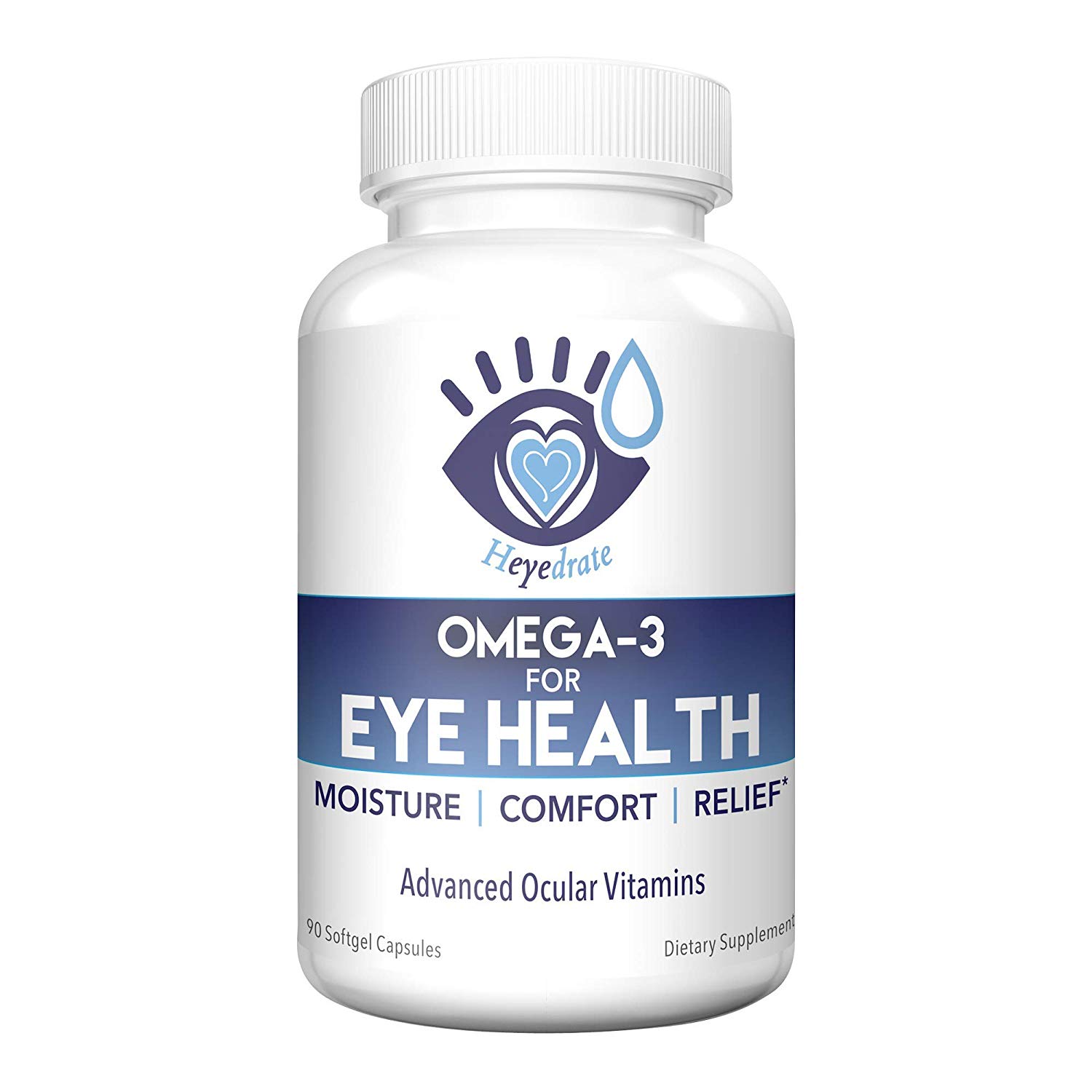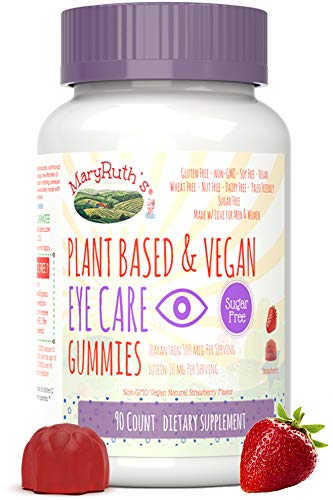Vision care is one of the most important things you can do to maintain the quality of your life. Some type of eye vision problem affects most adults as they grow older. The risk of vision loss increases with age.
One of the leading causes of low vision and blindness are age related diseases. These include macular degeneration, glaucoma, diabetic retinopathy, and cataract. Protecting eyesight is an essential part of vision care.
Most people tend to take their eyes for granted. There are many things that you can do to keep your eyes healthy. Remember that eye health is as important as overall health. This can help you maintain your eye vision even in old age.
Our Favorite Eye Products for Good Vision Care
With so many eye products available on the market for good vision and eye health, how do you pick the best solutions for you? Read on to discover some of the popular and best-selling eye products for good eye vision.
1. Ocular Health Formula
Ocular Health Formula enhances vision, macular health, and overall eye health. The health of the macula will determine your ability to read, drive, use a computer, recognize faces, watch television, and other visual tasks.
Astaxanthin, Lutein, and Zeaxanthin are powerful antioxidants that enhance eye health and vision. The strong antioxidants protect your vision by improving contrast and reducing glare.
The active ingredients for Ocular Health Formula include Alpha-Lipoic Acid 20mg, Vitamin B-6 20mg, Vitamin E 400 IU, Vitamin C 500mg, Copper 2mg, Selenium 50mcg, Folate 200mcg, Lutein 10mg, Bilberry 25% 15mg, Grapeseed Extract 20mg, L-Glutathione 10mg, Zinc 40mg, and Zeaxanthin 2mg.
The inactive ingredients include Vegetable Stearate, Gelatin, Rice Flour, Titanium Dioxide, and Silicon Dioxide. The product is easy to use. 2 capsules a day will help preserve vision and fight against aging eyes.
The Ocular health supplement is an ideal choice if you are predisposed to AMD (age related macular degeneration). The supplement improves the health of the macula and this helps to prevent macular degeneration.
The complete macula and retina support product are available in three different sizes. Customers can buy a 1-month supply, 1-month OHF/1-month Omega–3, 3-month supply.
2. PreserVision
PreserVision is the preferred choice of eye doctors for patients with moderate to advanced age-related macular degeneration. Age related macular degeneration is a condition that is associated with aging. It gradually destroys central eye vision.
Central vision is crucial for viewing objects clearly. It is also needed for common daily tasks such as driving and reading. AMD affects the macula. It is the part of the eye that allows you to see fine detail.
The ingredients include dl-alpha tocopheryl acetate, gelatin, Ascorbic acid, soybean oil, cupric oxide, soy lecithin, yellow beeswax, titanium dioxide, FD&C Blue 1, FD&C Red 40, and zinc oxide.
This vision care supplement contains a combination of different vitamins and minerals. The suggested dosage is 2 soft gels daily. One in the morning and one in the evening with food is typically the recommended dosage.
The product is available in six different sizes. Customers can choose to buy 1 pack (180 SGels), 1 pack (210 SGels), 2 pack (120 ct. each), 2 pack (210 ct. each), 3 pack (210 ct. each) and 120 counts.
3. Lutein Eye Vitamins
Lutein eye vitamins can help maintain vision care and health. Lutein, popularly known as eye vitamin, protects the eye. This reduces the risk of developing age-related vision degradation.
Macular degeneration is the most common cause of blindness in older adults. Lutein filters out a percentage of short wavelength UV light that is damaging to the eye. The light adversely affects the delicate parts of the eye (retina). By filtering the light, lutein lowers the risk of macular degeneration.
The expertly formulated ingredients include Lutein, Vitamin A, Zinc, L-Taurine, N-Acetyl L-Cysteine (NAC), grape seed, bilberry, and quercetin dihydrate.
Ingredients like grape seed and zinc work together to protect the eye. Protective melanin is produced, and it eases strain related stress.
Vitamin A is rich in antioxidants and this helps maintain night eye vision. Bilberry reduces temporary strain related inflammation. A combination of all these ingredients improves eye vision.
4. Heyedrate Eye Health Supplement
The Heyedrate Eye Health Supplement contains Omega 3 and Omega 7 along with other powerful antioxidants. They work together to continuously nourish the eyes. Fish oil works from the inside of the eyes to the outside.
The powerful antioxidants stimulate and enhance tear production. This reduces irritation and inflammation. This vision care supplement helps prevent damage and promotes healing on the eye surface.
When the eye’s surface is repaired it decreases irritation and drying. By stimulating tears, soreness and redness are reduced and this helps in healing the dry eye surface.
The ingredients that support total eye care include 40mg Omega 7, 515mg EPA, Lactoferrin, 415mg DHA, Vitamin E, Vitamin B-6, Vitamin C, and Magnesium. The other ingredients include beeswax, fish oil (anchovy), vegetable glycerin, gelatin, and purified water.
The eye health supplement is available in 2 sizes, 1-month supply, and 3-month supply. 3 capsules per day will help maintain healthy eyes. You get the best results when you take the capsules with food. The soft gels are easy to swallow.
5. Vegan Vitamin Eye Care Gummies (Plant-Based)
The Vegan Vitamin Eye Care Gummies (Plant Based) are premium non-GMO vegan supplements that provide the daily dosage of Lutein and Zeaxanthin.
The vision care gummies are good for age related macular degeneration, retinitis pigmentosa, and cataracts. All that you need to do is to take 2 – 3 gummies each day to keep your eyes healthy.
The ingredients include organic non-GMO vegan pectin, organic non-GMO vegan erythritol, and organic (vegan) fruit powder blend (blueberry, cranberry, lemon, strawberry, tart cherry, raspberry, pomegranate, orange).
The other ingredients include non-GMO vegan strawberry flavor, citric acid, organic non-GMO vegan sunflower oil, organic non-GMO vegan stevia leaf extract, sodium citrate, and purified water.
Vision Care for Healthy Eyes
Even though not all eye diseases can be prevented, there are simple steps that can help keep your eyes healthy. It can also reduce your chance of vision loss in the future.
Eat a Healthy Balanced Diet
Good eye health starts with a healthy and balanced diet. Nutrients like lutein, omega-3 fatty acids, vitamin C, vitamin E, and zinc will help fight age related eye vision problems like macular degeneration and cataracts.
Vitamin deficiency impairs retinal function. Include plenty of fruits and vegetables in your daily diet. If you want to get adequate nutrients from your diet to maintain good vision, you should include:
- Green leafy vegetables like collard, kale, and spinach.
- Beans, nuts, eggs, and other protein sources.
- Tuna, salmon, and other oily fish.
- Bright yellow and orange vegetables.
- Mangoes, oranges, and strawberries.
People who consume a diet that is high in lutein, vitamin C, vitamin E, zeaxanthin, zinc, omega-3 fatty acids (DHA and EPA) are less likely to develop early and advanced AMD.
A well-balanced diet will help maintain a healthy weight. This will lower the risk of obesity and related diseases like type 2 diabetes. Type 2 diabetes is the leading cause of blindness in adults.
Lutein and zeaxanthin are nutrients that are key to improving eye vision. Lutein and zeaxanthin are carotenoids found in the retina. These nutrients are found in broccoli, eggs, leafy green vegetables, and zucchini.
The nutrients can be taken in supplement form too. Carotenoids protect the macula by improving the pigment density of the eye. It also helps in absorbing blue and ultraviolet light. Eat a balanced diet to take care of your eyes and protect your eye vision.
Wear Sunglasses
UV blocking sunglasses delay the onset of cataracts. Direct sunlight hastens the development of cataracts. The right pair of sunglasses can protect your eyes from the harmful ultraviolet rays. Preserve your eyesight by protecting it from the sun.
The right pair of shades prevents retinal damage. They protect the delicate eyelid skin. It prevents skin cancer and wrinkles around the eyes. Always check for hundred percent UV protection when choosing sunglasses.
Ensure that the shades you choose block one-hundred percent UV-A rays and UV-B rays. Wraparound shades will protect the eyes from the side. Polarized sunglass lenses reduce glare while driving.
If you spend time outdoors, it is best to wear UV protection sunglasses. Even if you wear contact lenses that offer UV protection, it is advisable that you wear sunglasses. This will help prevent age related eye disorders.
Excessive squinting will lead to eyestrain and pain. Avoid squinting by wearing good quality sunglasses. Sunglasses will minimize the effects of bright light (blurred vision, red eye, and headaches) and this will help maintain good eye health.
Avoid Smoking
Smoking is linked to many adverse health issues including macular degeneration. Smokers and ex-smokers have a higher likelihood of developing AMD than individuals who have never smoked.
Smokers are at an increased risk of developing cataracts. Smoking also damages the optic nerve. This increases the risk of macular degeneration.
Smoking is not just bad for your heart and lungs, it affects your eyes too. Quit smoking to recover from years of harm to your body. Eye health improves when you quit smoking.
Eye Protection
Wear proper eye protection to prevent eye injuries. If you use airborne or hazardous materials at home or at work, wear protective safety glasses. Protective eyewear is essential if you work with chemicals and sharp objects.
Sports such as baseball or hockey can also cause eye injuries. Wear sports eye protection that meets the specific requirement of the sport. Sports goggles or helmets with protective eye masks will shield the eyes from injury.
Baseline Eye Exam
Even if you have no signs or risk factors associated with eye diseases, a baseline eye exam will help detect any changes in vision. The screening will also help in detecting early signs of eye disease.
It is important that you know about your family history of eye diseases. If you have a family history of eye diseases, high blood pressure, or diabetes, it is advisable to see an ophthalmologist to get an eye exam.
Hereditary eye conditions include:
- Retinal Degeneration
- Glaucoma
- Macular Degeneration
- Optic Atrophy
When you are aware of your family’s hereditary eye conditions, you will be able to take precautions. It will also help in early detection and treatment.
Early detection of eye problems like macular degeneration and glaucoma will help in treating the disorders successfully. If the eye problems are not detected and treated early, it can cause vision loss and blindness.
Avoid Eye Fatigue
If you work or stare long at a computer or phone screen, you could get eye fatigue. Eye fatigue can cause:
- Blurry Vision
- Dry Eyes
- Eyestrain
- Headaches
- Back, neck, and shoulder pain
If you want to protect your eyes, follow the 20-20-20 rule. Look away from the computer screen every 20 minutes. Look at an object that is 20 feet away for at least 20 seconds. If your eyes are dry, focus on blinking more.
Move the computer screen so that the eyes are level with the top of the monitor. Ensure that your contacts or glasses prescription is up to date. If the eyestrain or fatigue persists, you should consult an ophthalmologist.
Maintain a Healthy Weight
Maintaining a healthy weight is not just good for your waist but can also help your eyes stay healthy. Type 2 diabetes is common in people who are overweight. The tiny blood vessels in the eyes can get damaged if you are obese.
Diabetic retinopathy is a condition that causes the small arteries in the retina to leak fluid and blood in the eye. This can harm your vision. When you maintain a healthy weight, you will reduce the risk of type 2 diabetes and its complications.
Manage Chronic Conditions
Diabetes and obesity are not the only health conditions that can affect your eyes. Other health conditions such as sclerosis and high blood pressure can also affect your eye health. These conditions result in inflammation and this adversely affects eye vision.
Inflammation of the optic nerve can cause pain. In some cases, it can result in complete vision loss. High blood pressure and sclerosis can be treated with a healthy diet, exercise, and medications. This is all part of maintaining good vision care.
Maintain Good Vision Care: Ways to Take Care of Your Eyes Every Day
Maintain good vision and preventing eye problems is as simple as practicing essential eye care habits every day.
Get Enough Sleep
Eyes need to rest and recharge. This happens when you sleep. Ensure that you get sufficient sleep to keep your eyes healthy and revitalized.
Avoid Rubbing Eyes
Hands are exposed to a lot of dust, dirt, and bacteria. These are transferred to your eyes each time you rub them. Avoid rubbing your eyes to prevent irritation and infection.
Wash your hands to keep bacteria at bay. This will help prevent them from getting in contact with your eyes, contact lenses, and eyeglasses.
Stay Hydrated
Sufficient fluid intake is important for the wellbeing of your body. This includes your eyes. You will be able to prevent your eyes from getting irritated and dry if you are hydrated enough.
Keep Surroundings Clean
Exposure to dust and diet irritates the eyes. Keep the surroundings that you frequent clean and well maintained. This will ensure good health and vision for your eyes.
Use Good Quality Eye Makeup
Choose good quality eye makeup brands. Avoid makeup that can cause an allergic reaction to the eyes. Remove all makeup before going to bed. This will help prevent bacterial buildup from residual makeup in the eyes.
Wear Contact Lenses Properly
If you wear contact lenses daily, your risk of eye problems increases. Contacts can introduce bacteria and debris into your eyes. This can lead to different types of eye problems.
Clean and wear your contact lenses properly to reduce the risk of developing eye infections. Take the time to learn how to clean lenses and take proper care of them. Switch the lens pairs at regular intervals.
Warning Signs for Vision Problem
Some possible symptoms that indicate vision problems include:
- Reduced peripheral vision
- Flashes or floaters in the field of vision
- Distorted images
- Frequent changes in visual clarity
Habits that Hurt Eye Vision
Most of us are not aware that our everyday habits could be ruining our eye vision. Let us look at some habits that could be affecting you vision care routine negatively.
Not Eating a Well-Balanced Diet
Good diet and nutrition are key to good vision care. Fruits and vegetables that contain zinc, vitamin C, vitamin E, and omega-3 fatty acids are essential for good vision.
If you don’t eat a well-balanced diet, it can affect your overall health. If your eyes don’t get nutrients like lutein and zeaxanthin, it can adversely affect eye vision.
Apart from food, it is also important to stay hydrated. Staying hydrated is important for tear production. This will keep your eyes well lubricated and healthy. Skip foods that are high in sodium as they can dehydrate the body.
Sleeping in Contact Lenses/Wearing Old Contact Lenses
Sleeping in contact lenses increases the risk of infection. It can also result in permanent damage to the eyes. When you take your contact lenses out at night, ensure that your hands are clean.
Even though it seems harmless to wear one-day contact lenses the next day, you increase the chances of infection when you wear old contact lenses. People often tend to keep contact lenses much longer than the intended time.
Sharing contact lenses with others, sleeping in contacts, and not switching your contact lens case every few months are all things that can negatively affect your eyes. Avoid vision blurring and infection and keep your eyes healthy by taking care of your contacts.
Avoid wearing contacts in the shower or pool. When you wear contacts in the pool or shower, it allows bacteria into the eye. Microorganisms (Acanthamoeba) live in water and it can cause serious infection and damage to your vision.
Not Using Safety Goggles
Most eye injuries happen at home. If you are cleaning the house or mowing the lawn, it is advisable to wear good quality safety goggles. Adequate protection will help prevent eye injuries.
Wearing safety goggles at home may seem like an unnecessary precaution but many eye injuries occur at home. The risk of injury increases when you do a home improvement task that you are not trained to do.
Increased Screen Time
Looking at your computer screen for prolonged periods can lead to blurred vision, dry eyes, redness, and dizziness. If you look at a computer or smartphone screen before going to bed, it can interfere with your sleep schedule.
You increase your risk of eye strain when you increase screen time. Most people don’t realize the importance of taking a break from continuous screen time. When you strain to read small letters on the screen, the blink rate decreases.
The decrease in blink rate affects the rate of tear production. Without proper lubrication, eyes will begin to feel tired and dry. This can cause blurry vision. The feeling of unclear vision and fatigued eyesight can cause headaches.
More screen time will lead to irreversible deterioration of the retina. Spending long hours looking at the computer or a smartphone screen will affect your vision. Take breaks at regular intervals to help protect your eye vision.
Sleep Deprivation
Lack of sleep will hurt your eyes and vision. Sleep deprivation can result in many health problems including decreased immune function, depression, and weight gain. Symptoms of lack of sleep include blurred vision, pain, and dry eyes.
Signs of work overload and fatigue include red and sore eyes. A good night’s sleep will do wonders for your eyes. Sleeping for at least eight hours each day will help maintain good vision. Avoid using your smartphone just before bedtime.
Forgetting to Wear Sunglasses
Extensive UV exposure increases the risk of retina damage. You are also at risk of eye conditions such as macular degeneration and cataracts. When outside, it is important that you wear UV blocking sunglasses.
Get the shades out of your bag each time you head outside. Eye protection is more important than you realize. If you wear contacts, you should choose a brand that adds an extra layer of defence with UV protection.
Most people skip wearing sunglasses in winter. The truth is that UV rays are harmful in the winter too. Winter can be more dangerous as snow reflects sunlight back into your eyes. Wear sunglasses all year round for good vision.
Rubbing Your Eyes
When you rub your eyes, you get a moment of relief. Rubbing also spreads bacteria and dirt into your eyes. When you transfer bacteria and germs into your eyes it can result in conditions such as pink eye.
Eye rubbing is linked to permanent corneal damage. Eye disorders such as keratoconus are likely to occur when you rub your eyes.
Keratoconus is a condition in which the cornea thins and starts to bulge outside. The fragile vessels around the eye break when you rub your eyes vigorously.
If you feel something in your eye, it is important to remember that rubbing your eyes will only result in pushing the debris deeper into the eye. Try to blink rapidly so that the tears wash away the debris.
Smoking
Smoking is associated with higher risk of macular degeneration and cataracts. This will ultimately affect your vision. It is often the leading cause of vision loss in individuals over 50. Smoking harms the eye tissues.
Age related macular degeneration causes damage to the small spot of the retina. The small spot is important for sharp vision. When the retina starts deteriorating, it adversely affects your vision.
People who smoke are more likely to develop eye diseases including uveitis, cataracts, vision loss, and blood vessel damage. Quitting smoking is difficult but it is best if you want to maintain good vision care.
Using Expired Eye Makeup
Using expired eye makeup can cause an eye infection and irritate your eyes. Eye makeup should be changed at regular intervals. Bacteria is often found in expired eye makeup and this can affect vision.
When you use eye makeup including eyeliner, eye creams, mascara, and eyeshadow, it increases the risk of infection. Avoid applying makeup close to your eyelashes, as this can block oil glands and result in infections.
Old and expired mascara is an ideal breeding ground for bacteria. Throw away eye makeup after every 3 – 6 months depending on the brand. Avoid cheap eye makeup as it can cause irreversible damage to the health of your eyes.
Always remove eye makeup before going to bed. This will decrease the risk of infection and will help maintain good vision care.
Overusing Eye Drops
Eye drops help ease dry eyes. If you use eye drops too often it will irritate your eyes. Non-prescription eye drops will not improve your eye health.
Follow the instructions of your eye doctor when using eye drops. Stop using the eye drops after the infection has cleared. This will help avoid any unwanted side effects.
Watching Television at Night
With light levels changing quickly your eyes will find it difficult to adjust and process changes on the screen. This will result in dry eyes, redness, eyestrain, pain, and headaches. It can even affect your sleep schedule.
Watching television in dim light is not recommended. This can strain your eyes and make them tired. As a result, you will feel discomfort and experience blurred vision.
Skipping Annual Eye Exam
Skipping your annual eye doctor visit is a big mistake. This is especially true if you have a family history of eye disorders. Even if your vision is perfect, a visit to the eye doctor will ensure that the eyes are healthy.
Most people don’t realize that they may be squinting or straining their eyes. Many patients don’t seek medical help until it is too late and they have already started experiencing vision loss.
Your eye doctor can often detect eye problems even if there are no obvious signs or symptoms of illness. Early detection of eye diseases will make a huge difference in preserving and maintaining good vision care.
Things that Affect Vision Clarity
Most people experience changes in vision clarity during different times of the day or on different days. On some days it is clear, and on some days, it seems to be worse. The things that affect the sharpness of the vision include:
Sleep
Fatigue or lack of sleep contributes to poor vision. You will have difficulty focussing if you sleep for less than five hours daily. Lack of sleep will result in dry eyes, eye spasms, and irritated eyes.
Stress
Stress causes blurred vision. When you feel stressed, your pupils dilate. This allows more light to enter the eye and interfere with vision. Too much light can cause blurred vision.
Eyestrain
Viewing a digital screen or computer for prolonged periods makes the eyes work hard. Prolonged screen use can result in blurred vision. Most often people forget to blink when they stare at a screen. This can affect your vision.
Sunlight
The effect of sunlight on vision varies with different eye conditions. For some people, cloudy days provide better vision, whereas for others bright and sunny days improve vision.
Most people who don’t have a vision problem never give much thought to their eye health or overall vision care. This is a big mistake. Many changes occur in the body as you age and some of them may affect the way you see.
If you see any changes in your eye vision you should immediately schedule an appointment with an optometrist. Never take your eyes for granted.
Eating a varied diet that contains lots of vegetables, fruits, and lean proteins can help ensure that you get the right nutrients to maintain good vision.
If you are unable to get the proper nutrients from your daily diet, you can choose eye health supplements. It is always advisable to check with your eye doctor before you take any kind of supplements.
Maintaining good vision care is important for your overall health. Protect and take care of your eyes to ensure good vision throughout your life.
